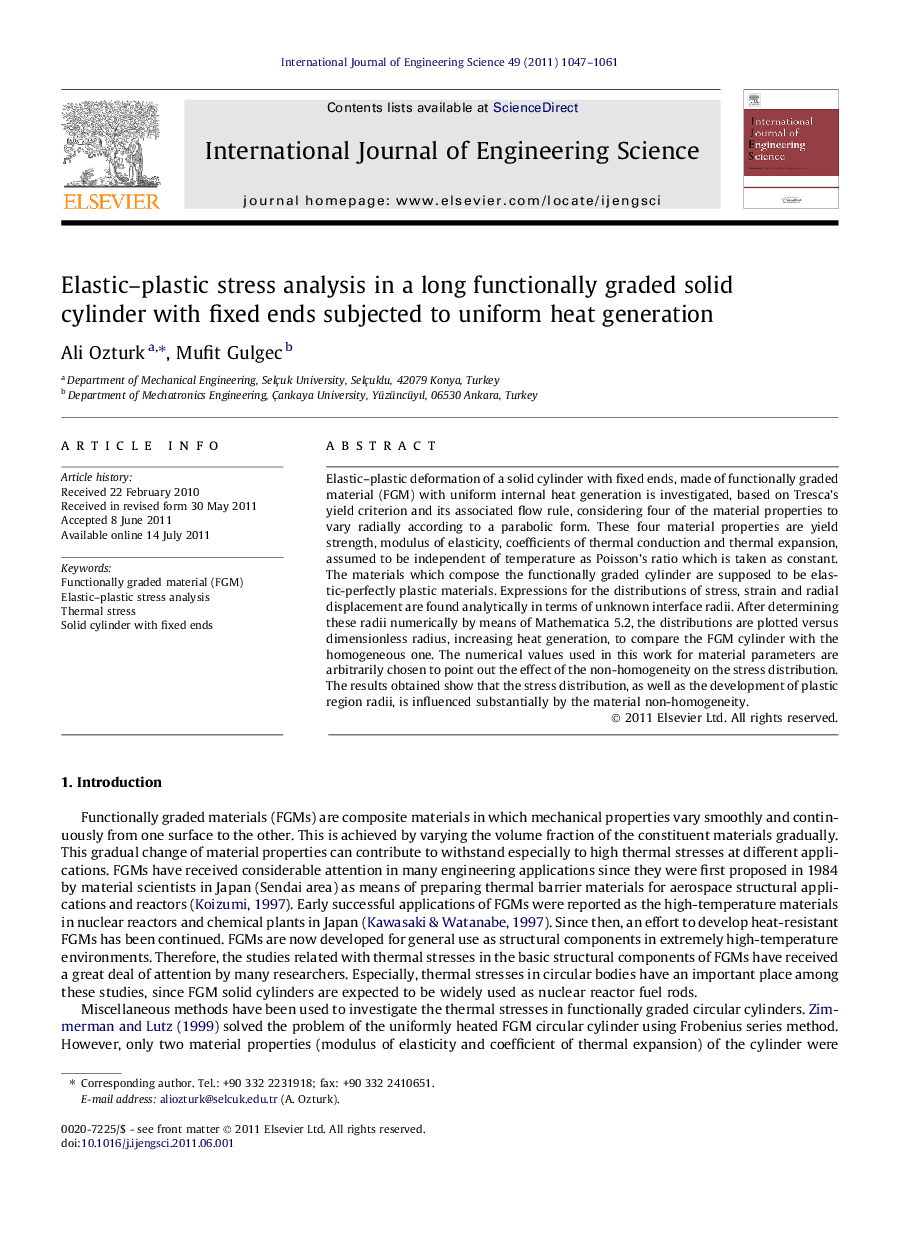| Article ID | Journal | Published Year | Pages | File Type |
|---|---|---|---|---|
| 825278 | International Journal of Engineering Science | 2011 | 15 Pages |
Elastic–plastic deformation of a solid cylinder with fixed ends, made of functionally graded material (FGM) with uniform internal heat generation is investigated, based on Tresca’s yield criterion and its associated flow rule, considering four of the material properties to vary radially according to a parabolic form. These four material properties are yield strength, modulus of elasticity, coefficients of thermal conduction and thermal expansion, assumed to be independent of temperature as Poisson’s ratio which is taken as constant. The materials which compose the functionally graded cylinder are supposed to be elastic-perfectly plastic materials. Expressions for the distributions of stress, strain and radial displacement are found analytically in terms of unknown interface radii. After determining these radii numerically by means of Mathematica 5.2, the distributions are plotted versus dimensionless radius, increasing heat generation, to compare the FGM cylinder with the homogeneous one. The numerical values used in this work for material parameters are arbitrarily chosen to point out the effect of the non-homogeneity on the stress distribution. The results obtained show that the stress distribution, as well as the development of plastic region radii, is influenced substantially by the material non-homogeneity.
► We model a functionally graded cylinder with four variable material properties. ► This modeling is in parabolic form with two parameters for each property. ► Elastic–plastic deformations are examined to compare with the homogeneous cylinder. ► Material non-homogeneity has an essential effect on the elastic–plastic deformation.
